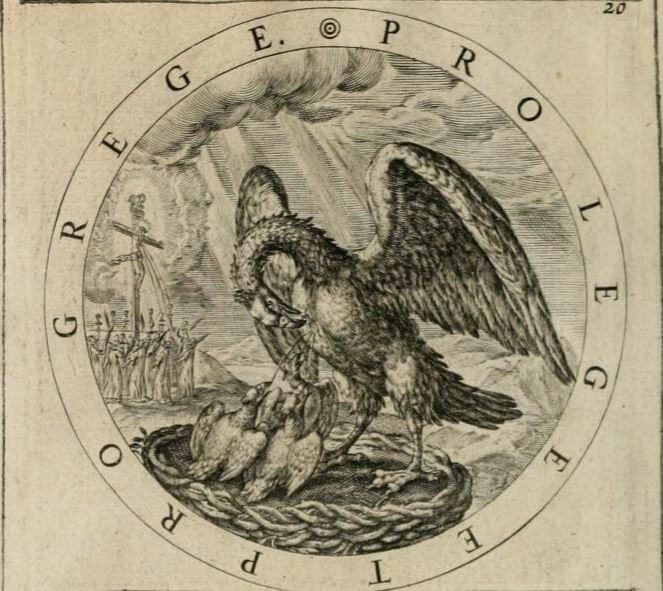The Genealogies of Modernity Journal
Secular Sacraments
Bypassing the quadrille of courtship, Joukovsky repurposes the marriage plot as a witty, unsparing dissection of human vanity and a quasi-sociological look at the mores of America’s de facto aristocracy.
Trevor Merrill reviews A. Natasha Joukovsky’s sparkling, multifaceted debut novel, The Portrait of a Mirror
The Diverse Roots and Routes of Liberty
There are many roads to modern liberty, but some focus not on the triumphant will but on the richness of the person and our commitments to one another.
Fred Bauer on an off-liberalism marked by care, duty, and solidarity rather than autonomy
The Extraordinary Marie Magdeleine Davy
Despite their imperfections, mystical texts are worth keeping alive in modernity—particularly in periods of authoritarianisms and violence—because they offer glimpses of other possibilities.
Brenna Moore on the life and work of a great figure of the Ressourcement
The Social Question of Artificial Intelligence
The word “artifice” means handiwork, work of skill. Artificial intelligence is a wondrous work. And yet, if we allow that artifice to define our reality… we may become artifices ourselves, handiwork of our handiworks.
John Dolan and Jordan Wales on AI and us
Developing an Off-Liberalism
Rather than being merely anti-liberal or anti-postliberal, the off-liberal reveals (and perhaps revels in) the heterogeneity of sources for the so-called “liberal” order.
Fred Bauer on developing an off-liberal approach to modern political predicaments
Demons of the Green World: From Caliban to Anthony Blanche
In remaining unknown, in speaking from the eccentric radicality of their own linguistic-ontological complexes, Caliban and Anthony become the voices of aesthetic criticism within their worlds.
Daniel Fitzpatrick on critique from margins
How AI Will Change Us
The meaning of our personhood becomes a necessary object of examination wherever some technology is deeply entwined with our lives, particularly when that technology purports to replicate what we are.
Jordan Wales and John Dolan on AI and us
Art Museums and the Modern Imaginary
Presentism is an obsession with the present that forgets its relationship with the past, that covers history and humanity with a blanket of generic sameness that muffles difference and dulls memory.
Donato Loia reviews Charles Saumarez Smith’s The Art Museum in Modern Times
Complaining about Incarceration
The notion that the people suffering from mass incarceration could testify truthfully about the system’s horrors was, and still often is, contentious. . . . Even more controversial: the idea that incarcerated people can critically analyze their position.
Luke Fidler on complaint and justice in prison
Retelling the Human Story
The crisis of deep history is a crisis for our modern self-understanding, and a short chronology of human civilization is no longer adequate for explaining our place in the world.
Evan Kuehn on the need for a longer view of history
Giving Utopia Its Due
Abjuring the legacy of utopianism distances us from one of the prime affective and intellectual forces motivating such modern ideals as popular sovereignty, human rights, and social progress.
Daniel Cunningham on the need for utopias
The Crisis of Historicism as a Crisis of Deep History
The crisis for historicism was its inability to hold together a single human story in the wake of its demolition effect on older sacred narratives.
Evan Kuehn engages Ernst Troeltsch on deep and sacred history
Death with Dignity
We are not isolated individuals… We are social creatures dependent on one another. If our life has an enormous social element, might not our death likewise?
Jeffrey Wald considers death in Christopher Beha’s What Happened to Sophie Wilder
The Music World Needs Haydn
Haydn condenses whole universes into his symphonies. Emphasizing his folkishness at the expense of his elegance, his grace over his passion, his control over his weirdness is a disservice to the world.
Jacob Martin on Haydn and renewing orchestral music
A Counter-Modern Intellectual Life
That Sertillanges finds these practical matters necessary for someone to live a properly intellectual life reveals a key insight: the intellectual is a human being, and a human being is more than just a spiritual soul.
Brs. Christopher Daniel and John Henry Peters on the intellectual vocation in the modern world
Theological Genealogy and the Undoing of Knots
The intended use of problematization is to recognize knots in order to be able to undo them. The undoing of the knots is beyond the scope of problematization, beyond the scope of scholarship.
Ryan McDermott considers theological genealogies of modernity
Shakespeare on the Theological Origins of Modernity
All of these restorations in “Richard III” are contingent upon the reinstatement of sincere eucharistic participation—Holy Communion . . . where rituals are revivified, and where communion—real Communion—can materialize.
Daniel Zimmerman finds a counter-modern theology in William Shakespeare























